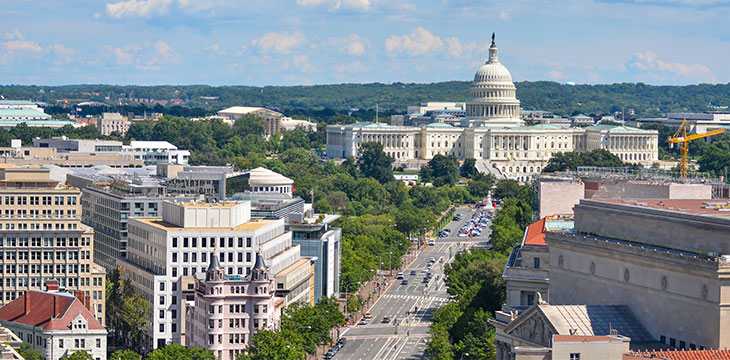|
Getting your Trinity Audio player ready...
|
Cryptocurrency and financial industry representatives descended upon Capitol Hill on Wednesday for a much-needed roundtable meeting on crypto. There were reportedly as many 80 individuals sitting on the crypto side of the discussion, providing their insight and suggestions on how to make the space more attractive in the United States. It would appear that their hard work and dedication paid off and that the hearing was a huge success.
The congressional “Legislating Certainty for Cryptocurrencies” meeting was held at the Library of Congress. The group talked about everything from initial coin offerings (ICO) to taxes and regulations, and many reinforced the challenges they have had to face when trying to launch new products or projects in the U.S. The common theme among all of them was the same—lack of regulatory clarity.
As an example, Blockchain President and Chief Legal Officer Marco Santori pointed out how the Simple Agreement for Future Tokens (SAFT) product came about. He explained that it was an attempt to introduce token sales without violating securities laws, adding, “The SAFT project was launched around this time last year. We did not invent it by any stretch … for those of us who were involved in the early project, I think we all realized it was not an ideal solution. As Coin Center put it, it was the symptom of regulatory uncertainty. It was not the best we can do. It was the best we could do.”
Georgia Quin, general counsel for CoinList, emphasized the importance of creating a regulatory framework. She said, “This concept of regulation by enforcement is really not helping us. When you look at the cases being brought, they are the low-hanging fruit, it’s the scammers, the liars … It’s not giving me any primers on how to operate a business.”
The meeting seemed to have the effect many had anticipated. Congressman Warren Davidson, who organized the event, told the participants, “Your input is critical to helping us preempt a heavy-handed regulatory approach that could stall innovation and kill the U.S. ICO market.”
Davidson added, “With a thoughtful, bipartisan approach that protects consumers, advances free market solutions and defines safe-harbors for the early stage innovators, Congress can send a powerful message around the world that the U.S. is the best destination for ICO markets.”
The largest obstacle to regulation is education. Rep. Darren Soto admitted that many in Congress aren’t opposed to seeing the industry develop; they just don’t understand it yet. Meetings such as the one that just concluded will go a long way in helping to shape policy in the near and distant future.

 02-16-2026
02-16-2026 




